When I was young, it was common as children to say something like, “but everyone else in my class gets to go!”
To which my parents would say, “if everyone in your class jumped off a bridge would you too?”
Every time I write a criticism about a particular rider or discipline, inevitably the comments roll in. And someone always whines that I'm picking on their discipline, because “It happens in EVERY discipline!”
It's pathetic.
Abuse happens in every discipline, true, but don't let that be an excuse for inaction.
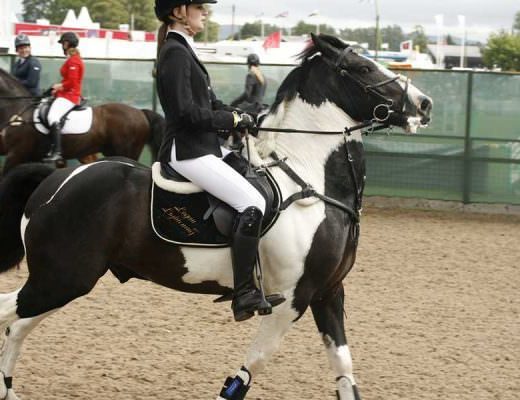
What this phrase says to me is that you're comfortable with horse abuse happening in all disciplines.
At least comfortable enough to avoid getting involved to stop it.
Too comfortable to get off the fence when you see it happening in front of you.
That relaxed attitude towards the mistreatment of horses educates the general public. It teaches them to also ignore horse abuse they witness in person and on television.
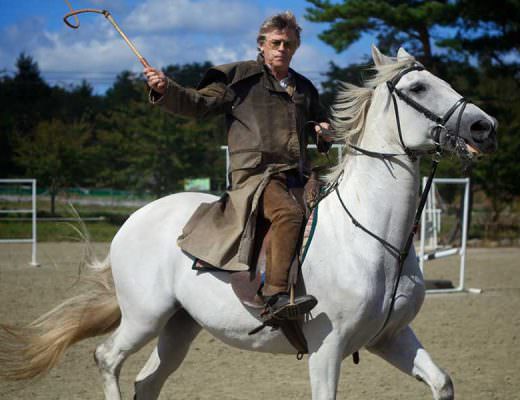
Why Should You Help Stop Horse Abuse?
I get it, you're afraid to speak up because you don't want to get kicked out of your little horse club. The community of horse people you've surrounded yourself with who are either abusing horses or just as afraid of getting kicked out of the club by opposing the horse abuse happening within it.
I believe this is typical behaviour in high-school.
We're not in high-school anymore, time to grow up and act like the adults we're all pretending to be.
Stand Up Against Horse Abuse Now, Not Later
We currently have the technology and social communication to make our actions more effective than any other time in history. No other generation could witness this Blue-Tongue horse abuse controversy and share it with the entire world in a few hours.
But it isn't about gaining headlines.
Stopping Horse Abuse is About Putting The Horse First
My position will always be putting the horse first. If we're doing anything else we're doing something wrong.
If we are policing our own community only so others don't step in and do it for us, we're doing something wrong.
Horsemanship is a leisure activity, even if you are a professional trainer, riding instructor or horse breeder. We aren't horse-dependent (to eat, travel, etc); we won't die if we don't train a horse in x-amount of days to perform a specific task.
Can you honestly claim that everything you control about your horse's care, handling, training, and competition is done in the horse's best interest?
- Are you shoeing your horse out of his best interest, or your own so you can go riding on terrain you've not taken the time to condition him for? Or to mask a lameness he really should be receiving pasture rest for?
- Are you riding in a saddle that doesn't fit your horse because it's all you can afford? So you ride right now, injuring him instead of waiting to ride, saving up and purchasing a properly fitting saddle.
- Are you rushing the training, “just a little”, to get your horse ready for a show he's not ready to handle so you don't lose the show fees?
- Are you using a butt rope and three large men to load your horse in the trailer he's terrified of? But you'll “take the time to work on trailer loading next season.”
They may seem trivial, but all of these small actions are done in our own interest and not for the horse. This type of mindset is what damages the horse, and makes it easy for equestrians to defend the use of more abusive actions.
“I just don't understand!”
I provide tech support and every day someone contacts me, often panicked and upset, “suddenly…” the product has broken their website.
Just out of the blue.
But nothing happens just out of the blue, in technology or horsemanship.
How often do equestrians claim their horse has, out of the blue done something wild, uncontrolled, CRAZY! But this claim also comes with an inherent, “I don't know what happened, I didn't do anything to make him do that!”
We have done something to cause our horse to behave in this way. Even if we couldn't recognize the effect of our actions and motivations as they were happening.
“Every discipline does it.”
Then perhaps we should all jump off a bridge.
I'd prefer not to. I'd prefer we all put the horse first, above our own selfish goals.
Or at least speak up when we see the most obvious abuses. We might become more sensitive equestrians and learn to recognize the more subtle ones.
Will you perpetuate the childish excuse of “every discipline does it”, or take a chance at speaking out?
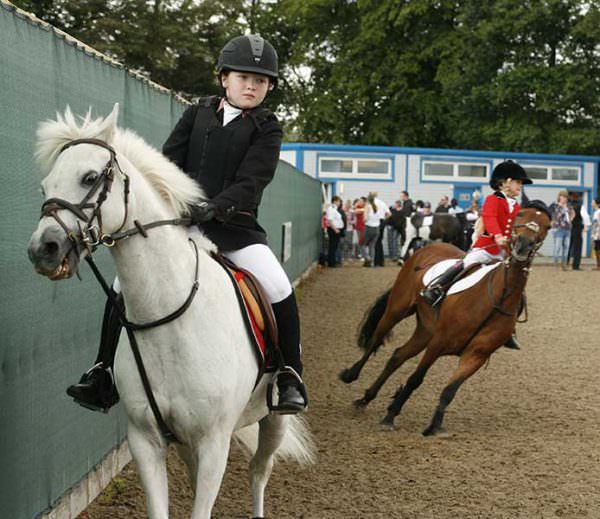
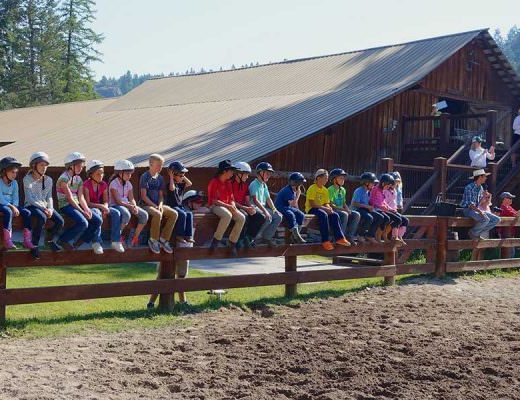
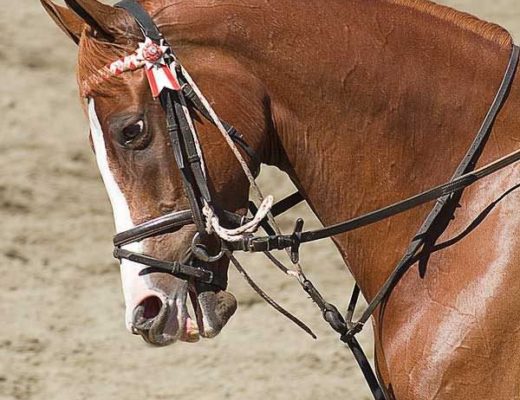
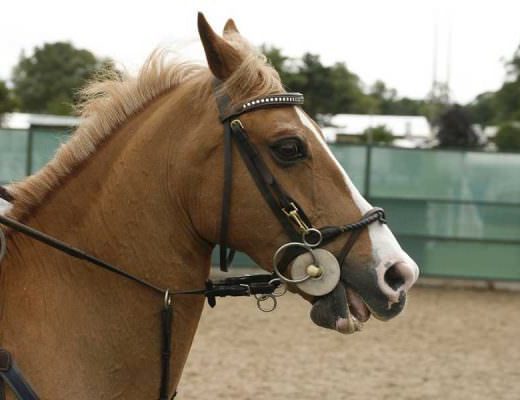
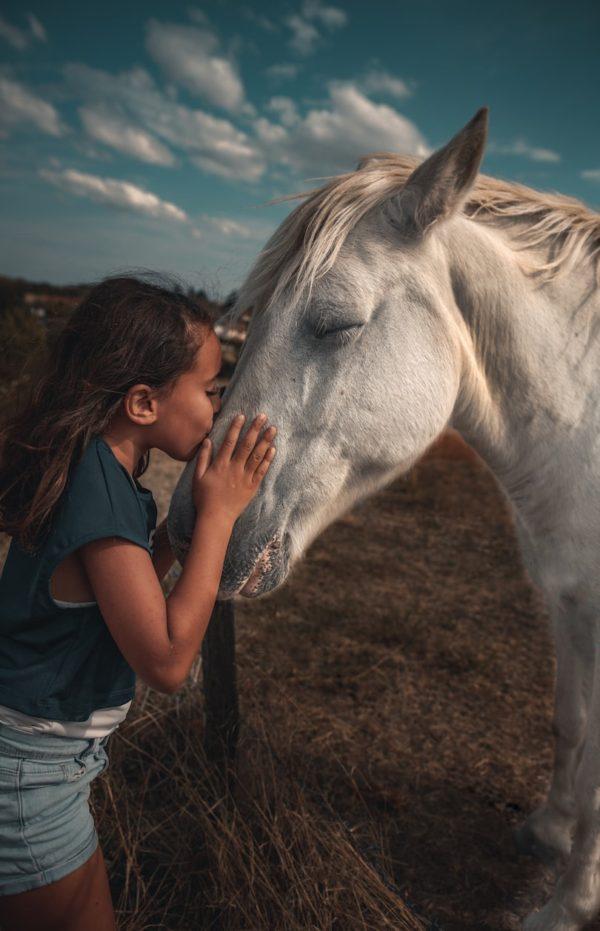
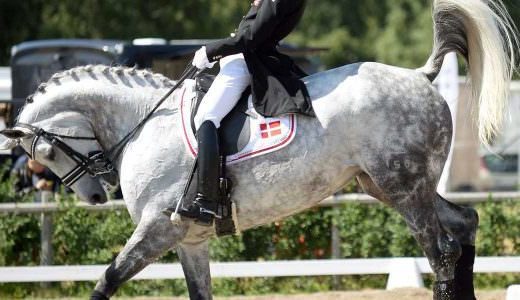
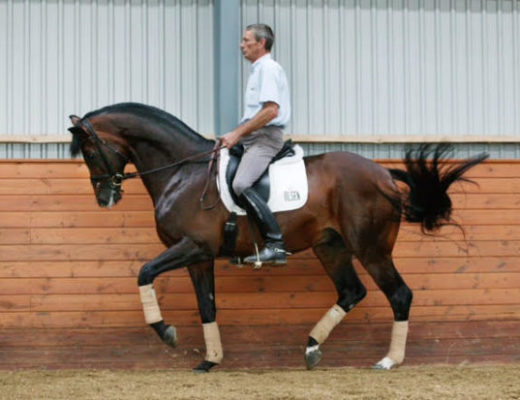
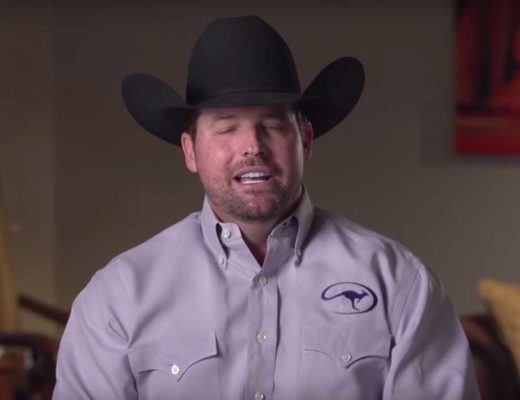
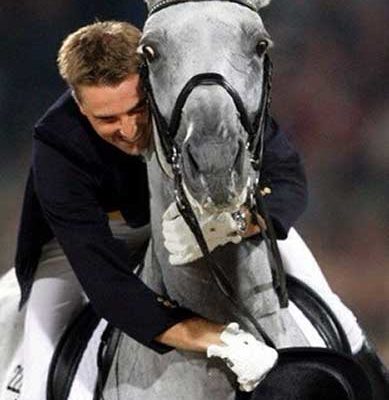
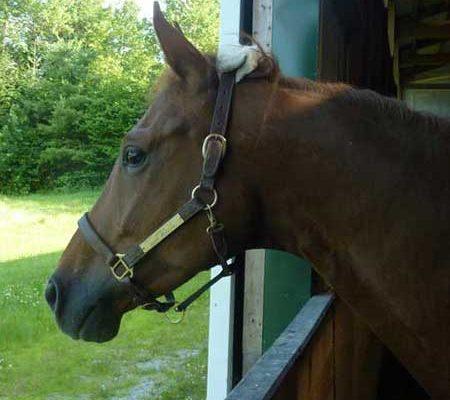
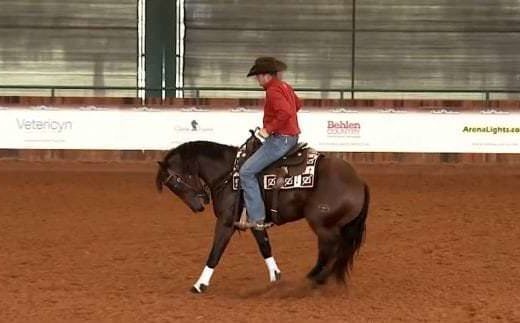
i like what you have to say
You are so right
Brilliant brilliant brilliant. The more that speak out the better! Love this piece of writing and the integrity of the writer
Hello Erica. Thanks for helping me understand a bit about why horses become an unwanted pet or whatever term is used. I am planning to open a horse rescue as soon as I find the perfect small farm. I have recently seen videos taken by Shark about the horrific abuse going on in the rodeo circuit… from illegal electric prodding to horse tilting. What is wrong with these people doing it as well as the ones cheering them on? I cried and cried. I saw a steer tipped and looked like his leg broke and another his neck was broke. I saw a horse convulse after being repeatedly electric prodded and died within moments stepping outside if the holding stall. I still see heel spurs and whips at dignified horse events. I have seen horses being auctioned from farmers that looked as if they were worked without feeding. My heart breaks and I just tear up at all of this. Horses are medicated so that they won’t feel pain jumping or whatever. I have seen a very big girl on a horse and you could see that she was more than disappointed when the horse refused to jump over even a low pole. It breaks my heart. Can’t wait until I can start taking in and rescuing these free hurt horses. I saw an article about techy gadgets on a horse that it looked more like a head cage for someone that broke their neck, as a training aid. Plus, had a bit. I looked into the horse’s eyes in the photo and you could see that it was not a happy camper being in that mess, let alone being photographed that way. They took what dignity away from that horse, not to mention how uncomfortable the horse was. I know nothing about the many horse disciplines, but that seems down right wrong.
Well put.
Spoken with conviction and integrity Erica.
I truly wish the people where I ride would LISTEN! When I raised the issue of the pain the bits cause the horses – and especially the mare I ride, who’s had her delicate mouth badly pulled at a different place – they just said, “Oh, they have no problem with it, they accept the bit.”
I know they don’t. Some of them are “difficult” to tack up because of this, and it’s ignored or glossed over.
The more we speak out, the better, but for the moment I’m stuck with where I go, especially as I adore the horse I ride there, so it’s a bit of a dilemma. Any hints for educating those of a racing/conventional background? (the people at the stables I go to here on Skye (Scotland) come from a very conventional – and a few from a racing- background. Poo.)
Thank you, for being brave enough to speak the truth when so many people don’t even dare acknowledge what is happening to horses and indeed other animals. I am lucky to share my life with five incredible horses who have taught me so much and who make me see how much of what we do with horses is wrong. I love them and so allow them to choose the life they want to lead and all but one would prefer not to be ridden. We are not riding now, it’s not the right time but all the rest have other things they prefer doing and so they just don’t get ridden and most people think I am mad because I value them even though I don’t get to ride them. How sad is it that a life of a horse comes down to what most people can get out of them? So thank you, because you have said what I feel and it’s great not to be the only voice speaking out for horses.
I agree completely with your blog, but I will tell you – it’s not being unpopular that scares most people from speaking out. It is fear of actual violent retaliation. When I wrote the Fugly Blog, I got a total of four separate death threats and a collection of threats to kick my ass, find my horses and kill them, etc. I was told that my horse would be attacked at a show. I went to every one of his shows and slept where I could watch him. If you think retaliation doesn’t happen, you haven’t been reading the news about horses shot to death in their own field. There are a lot of people who have a LOT of money invested in ensuring the current system of abuse and drugging and breeding diseased horses continue. Speaking out against any kind of wrong is not easy and those who have done it have risked violent retaliation throughout history. I agree that we should do it anyway – but I understand those who have too great a level of fear to do so.
Thanks Cathy for the reminder, I want to +1 this comment.
I miss your blog, Cathy. DId you start a new one maybe?
Damn straight.
I agree 150 %! Thats why I work with building an example of horse keeping where the horses interests and needs come first. We need to question our anthropocentric world view. The horses have so much to give to us if we start to listen, to meditate, to be with them, to learn from them! WHo are we anyway to teach them anything? By listening to the horses we can become better human beings!
Well said!
I agree there are problems, but not everyone agrees with the tortures you describe. I work with kids and POA ponies. We teach natural horsemanship. We do use snaffle bits but with my horses. NEVER the ones that put pressure on the roof of the horses mouth and hurt. As a matter of fact, my own horse is ridden with a hackamore, NO bit at all. It is more difficult to train that way, but when my grandson started riding her and jerked on the reigns when frustrated, no more bit. I decided he could learn to control the horse the way he was suppose to or not ride my horse. Now she is ridden with no bit and does great. You do not have to hurt a horse to train it. You have to use patients and teach the horse what it is you want. They respond to patience and kindness better than pain and punishment, it just takes longer and you get a great friend in the process.
There is abuse everywhere. Some so small it’s difficult to see, and some are more obvious to people who are educated enough to see it.
On the subject of bitless riding. I have found that it is no more or less difficult to train, it’s just a matter of adjustment. You also have to know what you’re doing and not use it as an “out”. What I mean by that is if you have heavy hands with a bit, it’s not going to help the horse if you switch to bitless. The problem is still heavy hands, not the tack. I’ve actually seen people try to use bitless headstalls as an easy way out, but since the problem was THEM and not the bit, the pressure that was now exerted into the noseband actually fractured the bones of the horse’s face. You must be careful with anything you use and you have to know what the underlying issue is before you try to fix it.
I stopped riding our horses almost three years ago. It was a decision made from my heart but also from research that is easily available for anyone who is willing to find the truth about the damage caused to horses because of riding. So if you want to talk about abuse to horses we really need to ask ourselves what the horses are begging us to consider….why do we ride when the information shows us that it is causing damage to the horses??
Race horses have to put up the same sort of abuse but at least they get to spend 23 hours per day in a nicely bedded stall. They will tell the press that they are treated like royalty. Practically horse heaven.
Thank you for the article.
I actually own a racehorse I adopted as a retired 3 year old. The woman who runs the racehorse rescue also works as an exercise rider for racehorses and, at least in the places she has worked (obviously one cannot vouch for every owner, trainer, facility, etc.), the horses are actually treated very well. Now, I enjoy watching races. I actually wanted to be a jockey for a time. My only real beef with the industry (besides the slaughter issues) is that the animals are worked too hard, too young. There are STRICT rules for what jockeys are and are not allowed to do (“roughriding” – physically impeding another horse – equals disqualification; it’s actually forbidden for the whip to touch the horse – it’s only there for a visual and aural cue). There are good and bad trainers and owners everywhere as well.
Those dropped nose bands are a particular pet peavey of mine. My two ponies have never known any kind of bit and never will. My mare drives in harness bit less and blinder less and she is rock solid – because I’ve allowed her to learn at her own pace
I agree 100%. We have to speak out, what others perhaps only think and to put our fingers in wounds, that many people obviously don’t see. The children are the first to be sensitized about other points of view. It’s not easy to swim against the mainstream. You may loose friends and you may have open animosity. But who else will horses give a voice?
Well said.
I agree with your blog completely and luckily I have a trainer who works with a horses biomechanisms, meaning she teaches the horse how to do it properly without hurting the horse and a majority of the time and often times without using additional “specialized” equiptment. However things are getting better for horses, it used to be almost every horse which drew a carriage had a barring rein which surprisingly enough the decline of it’s use was due to one of my favorite books, “Black Beauty”. Perhaps it’s time for another few generations to read that book and see things from a horses point of view?
If everyone ‘put the horse
first’ then every horse owner would be trampled. Absolutely, quality of life,
feed and proper stable management are critical but there are far, far too many
bleeding hearts “gentling” 1000lb animals that have no respect, no
boundaries, and don’t know how to carry themselves under saddle other than to
throw their noses in the air and hollow out their backs. Agreed, there are
people that abuse horses- those that rescue too many and are suddenly without
means to feed or provide veterinary care and end up with a barn full of bone
racks – shouldn’t this be a greater focus then critiquing choice of bits or
spurs? The line of what is abuse and what isn’t is also subjective, so perhaps
best not to jump up quite yet and call foul without full knowledge on every
discipline and every training method – which quite frankly nobody has.
I grew up riding hunters and for the most part only “heard” of abuses and did not see it in person. As an adult I have found myself surrounded by WP riders and so called “trainers” and have witnessed horrific abuse in an attempt to put artificial gaits, speeds and head sets on these poor horses. “Raftering” is just one of many terrible things done to these horses behind closed doors. (Raftering is tying a horse’s head to the ceiling rafters and leaving it there for hours every day to break down the neck muscles-resulting in the nasty, low head set)
We (me and a couple of other trainers) did successfully put at least one of these “trainers” out of business by passing the word around and writing to the local and national AQHA. In the end, the AQHA didn’t care that she
was drugging and abusing horses but they did care that she was showing as an amateur after taking money for
training. And maybe worst of all, she lost all of her clients over time not because of the abuse but because the horses were not winning!
If the breed associations took a more active role and had stewards at every show watching and noting what was being done in the practice ring possibly a lot of this would stop (not at home but at least at the shows). Disqualify any participant seen to be obviously abusing their horses. Judges need to be strong and not place artificial gaits, bad riding and riders with all kinds of nasty extra gear.
The other thing that sometime helps is to express your opinion strongly when asked. When my clients see a WP horse stumble past being spurred and jerked to death non stop and ask me about it , I explain exactly what is going on and how disgusting it is to me. I am not afraid to spread the word about any particular trainer.
I agrre 100%! Horse abuse is absolutely disgusting. Those people are a disgrace to the sport and an embaressement to the rest of us.
-Haileysmyhorse (myblog is myhorsemylife)
I think this is a rad post. I feel like the internet finally came to my farm and this post is why. I fuckin LOVE it! Well done lady! I have shared this on both my personal and my stables page to this. I love it! No beating around the bush… thats been goin on waaay to long! Well said!
Great Blog- You tell it girl! I’ll be in Santa Barbara polo club tomorrow watching some of this…my theory is show up-see what you can do- say something #betheirvoice
Thank you… well put and concisely written.
I have just spent the week at an animal behaviour conference, listening to various talks on behavioural and welfare issues. It is so important that we see the ‘non critical’ problems – poor saddle fit, riding a horse who’s not quite ready for competition – as lower grade welfare issues that, over time, will build up to cause career ending physical issues and in many cases a shortened life. Yet that’s OK for many owners, who can’t seem to see beyond next week.